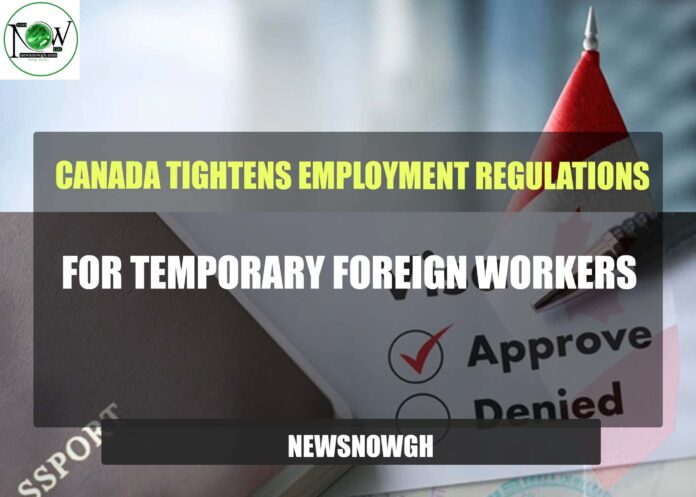Canada Tightens Employment Regulations for Temporary Foreign Workers | Canada Immigration
To lessen its need for foreign labor, Canada has tightened its rules for employing temporary foreign workers, increasing salary requirements and limiting the number of foreign hires. Prioritizing Canadian workers and ensuring fair labor market procedures are the goals of these reforms.
Canada has tightened regulations for recruiting Temporary Foreign Workers (TFWs) in an attempt to boost its domestic labor market. It will be harder for foreign workers to find jobs and settle in Canada as a result of these changes, which are intended to lessen dependency on foreign labor.
Key Changes to the Temporary Foreign Workers Program
To promote more equitable working conditions, Canada updated the Temporary Foreign Workers Program (TFW) regulations, which permit employers to hire foreign workers for temporary positions when competent Canadian workers are not available. Beginning in late 2024, several new regulations that impact both businesses and foreign employees will take effect.
1. Increased Pay Requirements for High-Wage Stream
The salary criterion for high-paying employment will rise by 20% above the median hourly wage in the province or territory starting on November 8, 2024. Depending on the area, this change will increase the hourly wage range by $5 to $8. Because hiring TFWs will become much more costly, Canadian firms may choose to hire domestic workers over foreigners.
2. Less Reliance on Foreign Workers
According to the Canadian government, some firms have taken advantage of the TFW Program to avoid hiring eligible Canadians. Some businesses have paid TFWs less than Canadians, which has slowed wage growth and decreased the number of jobs available to local workers. Employing Canadians is encouraged by the new wage regulations, which promote the expansion of local jobs.
3. Measures for Data Verification
The government will implement more stringent data verification procedures on October 28, 2024. To guarantee that only valid employment offers for foreign workers are processed, employers must provide more accurate and verifiable information in their applications.
4. Hiring Cap for TFWs
Employers will be limited to using the Temporary Foreign Worker Program to hire no more than 10% of their total staff as of September 26, 2024. The goal of this cap is to increase employment prospects for Canadians and reduce excessive reliance on foreign labor.
Effects of the Modifications
The new regulations may result in the loss of 20,000 TFW jobs by moving 34,000 jobs from the high-wage stream to the more constrained low-wage stream. The goal of these modifications and the newly announced regulations is to further lower the proportion of TFWs in the Canadian workforce.
Differentiation Between High-Wage and Low-Wage Streams
Low-Wage Stream
Jobs that pay less than the median hourly salary plus 20% are included in the low-wage stream. Companies that hire TFWs under this stream will be subject to several limitations:
- Transportation back to the worker’s nation of origin must be provided.
- Employers are required to provide workers with appropriate accommodations.
- It is necessary to use at least two more hiring practices that are appropriate for the profession.
- At no workplace may TFWs account for more than 10% of the employer’s workforce.
- Applications for Labour Market Impact Assessments (LMIAs) will not be considered for jobs in areas where the unemployment rate is 6% or greater.
High-Wage Stream
Jobs in the high-wage stream pay 20% more than the median hourly wage in the province or territory. Employers in this category are permitted to hire as many TFWs as they choose. Furthermore, the government does not take local unemployment statistics into account when processing LMIA applications for high-paying jobs.
Conclusion
By encouraging firms to hire Canadians first and reducing reliance on foreign workers, Canada’s revamped Temporary Foreign Worker Program will result in a more balanced labor market. The measures, which include tougher employment restrictions and higher salary requirements, are part of a larger movement to safeguard Canadian workers and guarantee ethical labor practices nationwide.
Follow us on Newsnowgh.com to stay updated on the latest information regarding work permits, visa application processes, paths to permanent residency, and visa-sponsored employment.


